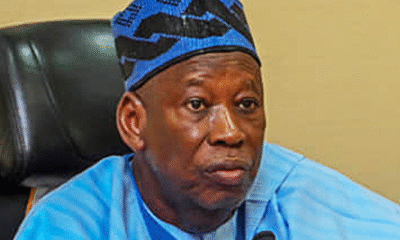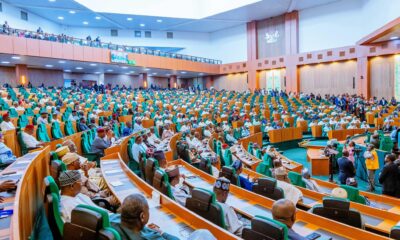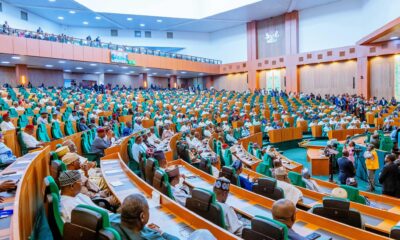National News
NLC, TUC speak over rejection of N60,000 minimum wage by governors

The Nigeria Labour Congress (NLC) and the Trade Union Congress (TUC) vehemently condemned the 36 state governors on Saturday for their stubborn refusal to implement the proposed minimum wage of N60,000.
The labour leaders vehemently denounced the governors’ refusal to adopt the proposed minimum wage, labeling it as a callous and insensitive decision that disregards the plight of Nigerian workers.
The governors had in a statement by Halimah Salihu Ahmed, Director of Media and Public Affairs of the Nigeria Governors’ Forum (NGF), announced on Friday their inability to afford the N60,000 minimum wage proposed by the federal government.
In response, Benson Upah, Head of Information and Public Affairs at NLC, expressed disbelief at the governors’ claim, pointing out the significant increase in the cost of living, including fuel prices and the devaluation of the naira.
“We are shocked by the Nigeria Governors Forum’s assertion that states cannot afford to pay N60,000 as a minimum wage, stating that some would need to borrow monthly to meet this obligation. This statement, issued during ongoing negotiations, demonstrates bad faith and is highly inappropriate,” Upah stated.
The labour unions highlighted that federal allocations to states have increased from N700 billion to N1.2 trillion, which should enable them to meet the proposed wage. They argued that reducing government expenditure, curbing corruption, and prioritizing worker welfare are essential steps the governors must take.
“A national minimum wage sets the lowest legal pay and is intended to protect the most vulnerable workers. The focus should be on the value of wages, not just the figures. The current economic conditions, with the naira trading at N1,600 to the dollar and inflation at 33.7%, have drastically reduced the real value of the minimum wage,” the unions explained.
The critics lambasted the government’s economic policies, specifically the elimination of fuel subsidies, naira devaluation, and increases in energy tariffs and interest rates, which they argued have collectively worsened the economic plight of Nigerians, exacerbating poverty, inflation, and general economic hardship across the country.
The unions cautioned that failing to provide adequate wages would have far-reaching and devastating economic and social repercussions, as worker earnings are a crucial driver of economic activity and growth in states.
“Paying a substandard minimum wage endangers both the workforce and the national economy. We urge the governors to reconsider their position to prevent further economic decline and social unrest,” the labour leaders concluded.
-

 Crime and Law2 days ago
Crime and Law2 days agoBreaking: VeryDarkMan regains freedom
-

 National News2 days ago
National News2 days agoIGP inspects police security tech facilities
-

 Metro News2 days ago
Metro News2 days agoALGON chairman slumps during meeting in Lagos
-

 Politics2 days ago
Politics2 days agoAPC is ready to welcome Kwankwaso – Ganduje
-

 Politics2 days ago
Politics2 days agoSenate gets new lineup as Akpabio reshuffles leadership
-

 Health2 days ago
Health2 days agoOver 1,200 applicants screened for positions in Edo hospitals
-

 Crime and Law2 days ago
Crime and Law2 days agoTerrorism: Buni calls for enhanced land, air synergy against Boko Haram
-

 Crime and Law1 day ago
Crime and Law1 day agoVeryDarkMan breaks silence after release





























